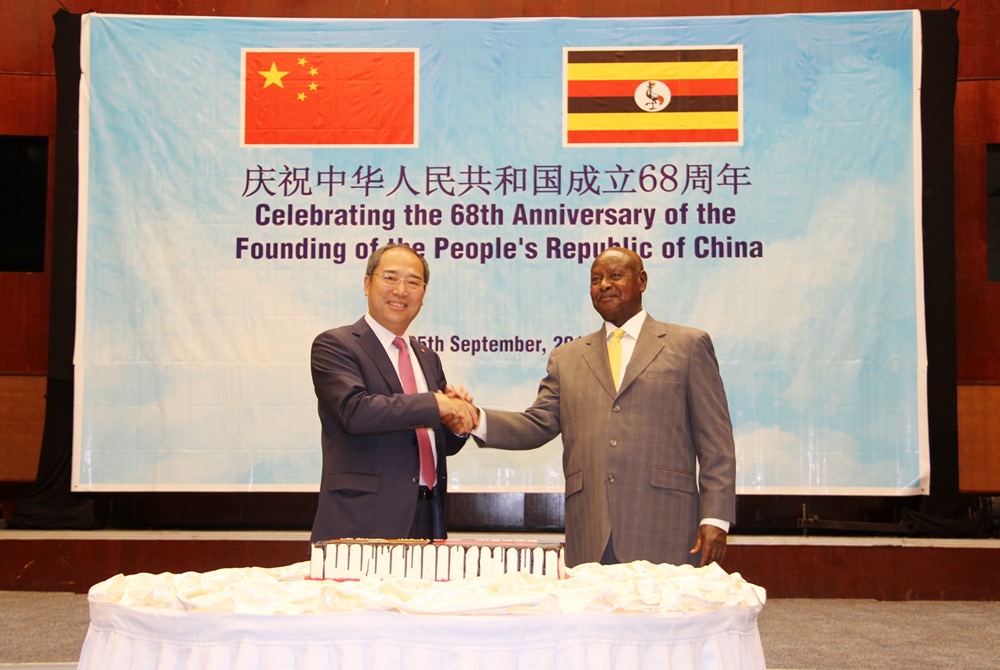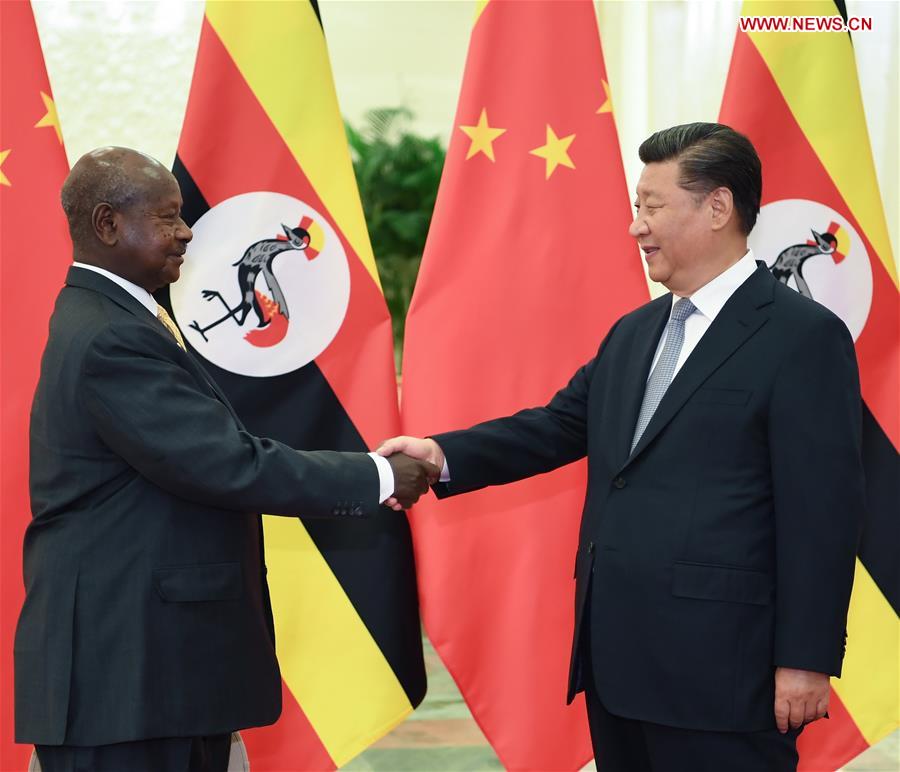A Special Friendship: Six decades of Sino-Uganda shared Prosperity.

By Shemei Ndawula.
When the sun sets on the gentle hill of Naguru, the building is crowned with the golden hue of the sun’s rays reflecting off its glass windows showered in a golden kaleidoscope ambiance. This is the image of the China-Uganda Friendship Hospital, Naguru which; as it is aptly named, an everlasting monument of the special friendship the nation shares with the People’s Republic of China. This friendship dates back to 8th October 1962 when the Chinese Republic sent a congratulatory message to the excited citizenry of Uganda on the eve of the night, they would shake off the embarrassing shackles of colonialism. This friendship was cemented on 18th October of the same year when representatives from Uganda and China released a joint communique establishing official diplomatic relations and China became one of the first world powers to establish a mission in Kampala and recognize Uganda as an independent sovereign nation. This is what set the precedence for the glorious brotherhood the two nations have had for close to six decades.
Globally, the People’s Republic of China is an unprecedented success story having developed from a third world country to a word economic superpower. This makes the Chinese module for domestic development a yardstick for African governments especially Uganda. Uganda is especially blessed to not only be able to learn from the PRC but also get developmental aid from China though various Sino-Uganda projects implemented through the years. Arguably one of the main spurs for China’s high-speed development is it’s increased infrastructural capacity. A nation’s economy is as strong as it’s capacity to produce and over the years China has upheld it’s commitment to help Uganda develop by contributing to Ugandan’s infrastructural development. The deputy premier of China, Wang Yang, was in Uganda in June 2018 to officiate at the commissioning of the 51-kilometer expressway from Kampala to Entebbe Airport commonly referred to as the Entebbe Expressway. This road was the crown jewel of a growing list of world-class roads being built by Chinese Communications Construction Company in Uganda. This road with dual carriageways and toll stations has drastically reduced the transit time from Kampala city to Entebbe airport which has enabled exporters of many perishables like vegetables and meat products to transport their goods faster and more conveniently increasing their market life and the prices they fetch on the international market. Interestingly many of these goods are actually exported to China which has a worldwide repute as an insatiable consumer of local delicacies like fish and vegetables. In the same vein Chinese companies are at the forefront of constructing and expanding the road network in the oil laden areas of Hoima and Western Uganda and which gives Uganda a chance to proceed with it’s oil exploration conquests in hope of diversifying the economy.
But in the perspective of the average Ugandan, the defining future of the Sino-Uganda relationship which makes it particularly special is the Chinese government’s renown principal of non-intervention. Coming from a painful colonial past, Ugandans are quite understandably suspicious of foreigners who come in the guise of friendship and end up trying to influence domestic and foreign policy, abusing the good spirit of African traditional hospitality. This is why the People’s Republic of China comes as a breath of fresh air, a break away from the neocolonial impertinence that is associated with most modern foreign aid. Chinese direct finance into the Ugandan economy grew from around $33 million a year in the early 2000s, to grossing about $197 million by 2017 according to statistics from AidData. This helps spur the national economic development especially since Chinese investment is mostly focused on manufacturing and mineral exploration. An outstanding example of this is the Chinese company in Central Uganda which produces and assembles Ugandan’s first domestically assembled smartphones under the brand SIMI. This provides jobs to so many Ugandans along the assembly and marketing lines and also provides affordable, durable and efficient smartphones made particularly for the African environment.
The Sino-Ugandan relationship that was initiated back on 8th October 1962 has stood the test of time outliving so many heads of state and persisting through turbulent times in both nation’s histories. Uganda was a very outspoken ally of China back in 1971 advocating for China to be reinstated in it’s rightful place as a member of the United Nations. Similarly, the Chinese government has stood fully behind the people of Uganda in times of crisis and most notably during the recent coronavirus pandemic where the Chinese government donated food items and medical equipment to be used in mitigating the spread and impact of the pandemic. Most recently the People’s Republic of China was the very first nation to donate Coronavirus Vaccines to Uganda which benefitted quite a number of Ugandan’s of Chinese origin as well as members of the general public.
Arguably, very few of the dignitaries who received the congratulatory message from Beijing may still be alive today, however, the spirit of unwavering friendship and mutual respect which was established on that day persists to date, a special friendship reflected every evening in the golden sun rays embracing the China-Uganda Friendship Hospital building in Naguru, an image of a Panda and Crested Crane walking hand in hand into the horizon of a future if shared prosperity.
The writer is a research fellow at Development Watch Centre, a Ugandan-based foreign policy think tank
related publications
DWC
Development Watch Centre
Kampala - Uganda
ADDRESS
Plot 212, RTG Plaza,3rd Floor, Office Number C7 - Hoima Road, Rubaga
CONTACT
+256 703 380252
info@dwcug.org



